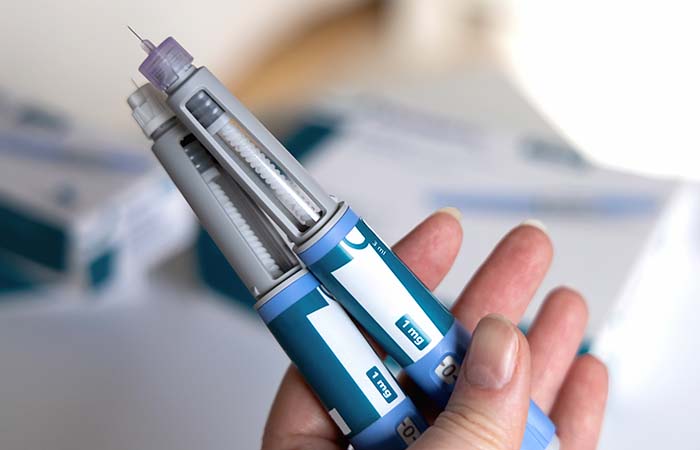Criminals selling fake ‘DIY’ GLP-1 kits with syringe and powder separated
In Health & NHS news
Follow this topic
Bookmark
Record learning outcomes
In a worrying new trend, Northern Ireland health officials say they have recovered fake weight loss products being sold “in powder form alongside syringes” for members of the public to assemble before injecting themselves.
The Medicines Regulatory Group, a division of Northern Ireland’s Department of Health, revealed yesterday (August 7) that criminals are now selling these ‘DIY kits’ in addition to counterfeit unlicensed pre-filled pens sold as containing a GLP-1 receptor agonist.
“The mixing of ingredients and use of such kits can present additional risks to the public,” said Peter Moore, a senior DH enforcement officer.
Mr Moore said the MRG has received reports of “several people who have been hospitalised after using potentially fake and unlicensed medication”.
P3pharmacy has approached the DH to learn how many individuals have been hospitalised in Northern Ireland after taking counterfeit weight loss medicines.
The MRG revealed there have been 34 investigations and five prosecutions for the illicit trade of counterfeit weight loss medicines in the last three years in Northern Ireland, focusing on the unlawful possession and advertising of these products as well as supplying them to the public.
“We are committed to an ongoing programme of monitoring, investigation, enforcement action and partnership working to tackle the issue,” Mr Moore said.
Aaron McKendry, interim head of the MRG, said the unlawful distribution of unauthorised non-surgical cosmetic medicines is a “serious issue” in Northern Ireland.
Mr McKendry commented: “It is extremely important that people take prescription only medicines after consultation with their GP, pharmacist or other healthcare professionals who have access to patient health records and can consider the risks and benefits associated with every medicine.
“Medicines obtained through unregulated or unapproved sources will often not have been prescribed by a health professional, may not have been subject to the normal safety and quality controls on manufacture and, as such, may not be of the required quality or be of the nature described.”
Mr McKendry urged anyone who suspects a medicine has been falsified to speak to a pharmacist or GP and report it to the MHRA’s Yellow Card system as well as the MRG’s investigating team.
Related stories:
National investigation launched into ‘skinny jab’ hospitalisations
Botox nurse gets £8k fine after ‘bypassing’ pharmacist checks

